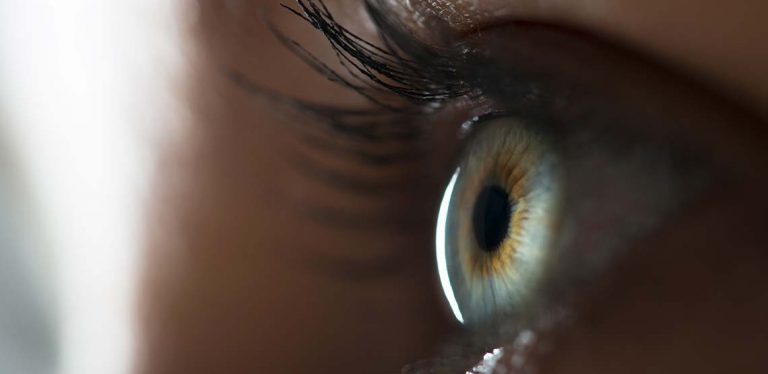How to Improve Your Eyesight
In this article, we look at how to improve your eyesight, with eight different tips.
8 Ways to Improve Your Eyesight
Here are a few tips to help you maintain the best vision.
1. Consume a Variety of Vitamins and Minerals
Many health conditions are preventable simply by consuming a healthy diet. In particular, when it comes to your eye health, vitamins A, C and E are important, especially when preventing macular degeneration. Additionally, zinc, antioxidants and carotenoids can help ensure a healthy retina and macula.
Some foods you may want to consider adding to your diet (if you don’t already) include:
- Leafy green vegetables (ex. spinach).
- Carrots.
- Red peppers.
- Broccoli.
- Eggs.
- Zucchini.
- Sweet potatoes.
- Strawberries.
Additionally, supplements that support healthy eyes include lutein and zeaxanthin, which are carotenoids that help protect the macula.
2. Exercise Regularly
Staying in shape can help prevent diabetes. Unfortunately, diabetes can lead to complications, such as diabetic retinopathy, which impacts the blood vessels in your eyes. Luckily, working out and maintaining a healthy diet can prevent diabetes by ensuring you maintain a healthy weight.
3. Wear Eye Protection
Sunglasses protect your eyes from damage caused by UV rays. Ideally, you should go for sunglasses that block 99% to 100% of UV.
But that is not the only eye protection you should worry about! If you are playing sports or have a hazardous occupation, wearing eye protection, such as goggles, ensures that you won’t get metal shards, wood bits, chemicals, sharp objects, or other material in your eyes.
Related Search Topics (Ads)
4. Manage Any Chronic Conditions
As mentioned above, diabetes can lead to eye health complications. Thus, if you have diabetes, it is important to ensure it is managed properly to prevent any adverse effects. On top of this, multiple sclerosis and high blood pressure can also negatively impact your eye health due to their association with chronic inflammation. If you have any of these conditions, make sure you pay attention to your diet and take any medication as directed by your doctor.
5. Use the 20-20-20 Rule
Many of us work in front of a computer day in and day out. While technology has, inevitably, made our lives that much easier, it is not all good news. Staring at a screen all day can greatly impact your eyesight. In order to prevent eye strain, use the 20-20-20 rule.
This rule involves looking at something 20 feet away for 20 seconds after staring at your screen for 20 minutes. Set a timer and try it out!
6. Quit Smoking
Smoking increases your risk of developing macular degeneration and cataracts. Yet, smoking isn’t just bad for your eyesight. It also impacts your lungs, heart and your overall health and wellness. If you don’t smoke, don’t start. If you are a smoker, make it your goal to quit. At the end of the day, it is just not worth it.
7. Know Your Family’s Health History
Many health conditions are actually genetic. This means you inherit them from your parents or grandparents. Knowing eye health conditions that have impacted past generations can help you prepare yourself, as well as prevent them from becoming your problem as well.
8. Avoid Touching Your Eyes
Or if you do, make sure you thoroughly wash your hands before doing so. This also goes for those who use contact lenses and put them in and take them out of their eyes using their fingers and hands. Germs can easily spread, and they are most likely to do so via your hands and fingers.
Common Eye Conditions
About 12 million people in the U.S. have a vision impairment, and this only includes individuals aged 40 and up. In fact, as you age it is quite normal to have changes in your vision. At the same time, many of these conditions and diseases are preventable.
For instance, cataracts can happen due to spending too much time in the sun without proper eye protection. Experts also imply that other conditions, such as glaucoma, can be prevented with proper eye care and protection. So, let’s take a look at what you can do to maintain and improve your eyesight.
In Conclusion
Your sight is one of your most important senses. It pays to take care of your eye health, which includes getting prescriptions for contacts and glasses. Whether or not you need a prescription to help you see, it's still recommended to take care of your eyes.
Use the above tips to take proper care of your eyes. Vision loss is a natural part of aging. However, you can maintain relatively good vision at most ages. Usually, it simply involves looking after yourself and your body!
Article Resources
- Medical Eye Center (Importance of Eye Care)
- CDC (Fast Facts of Common Eye Disorders)
- WebMD (What Are Cataracts?)
- Healthline (10 Ways to Improve Your Eyesight)
- Antioxidants (Nutrients for Prevention of Macular Degeneration and Eye-Related Diseases)
- National Eye Institute (Healthy Vision Tips)
- Macular Society (Smoking and sight loss)

